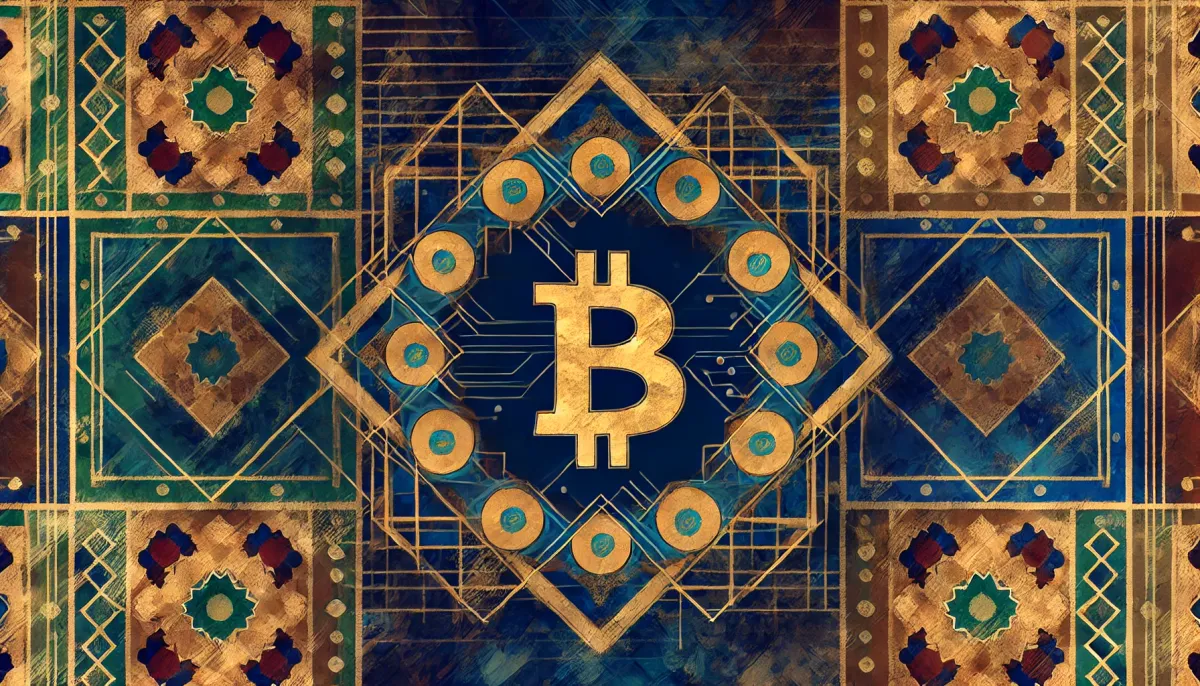Bitcoin as a Lifeline for Women in Authoritarian Regimes: Insights from Roya Mahboob
On February 8, 2023, Bitcoin Magazine's Freedom Money series featured Roya Mahboob, one of the first female tech entrepreneurs in Afghanistan, discussing the intersection of technology, gender, and financial sovereignty, particularly in Afghanistan.

Short Take Notes
My 'short take' summaries focus on the content of podcast episodes; they do not reflect my own views. If you have comments about this short take note, please leave a comment below (requires signing up for a free blog subscription). Note that some of the podcasts I summarize are likely sponsored episodes: don't trust, verify, if the information you are looking for is to be used for decision-making.
Summary
In his February 8, 2023 episode from Bitcoin Magazine's Freedom Money series, Roya Mahboob shares how Bitcoin has empowered women in Afghanistan, providing them with financial independence in a society where traditional banking is restricted. Through Bitcoin, women were able to secure payments, maintain financial control, and navigate authoritarian restrictions. The discussion also highlights the importance of education and financial literacy in driving Bitcoin adoption among unbanked populations.
Take-Home Messages
- Bitcoin provides a financial alternative for women in authoritarian regimes, offering independence from male-controlled banking systems.
- Bitcoin’s decentralized nature enables financial sovereignty, even in politically unstable or conflict-ridden environments.
- Mass education is critical for the widespread adoption of Bitcoin, particularly in regions where traditional financial systems fail.
- Bitcoin serves as a tool for unbanked populations, allowing them to access the global economy without the need for formal identification or bank accounts.
- Overcoming skepticism about Bitcoin requires targeted educational initiatives, particularly in developing regions where volatility remains a concern.
Overview
This podcast with Roya Mahboob explores the potential of Bitcoin as a tool for financial independence, particularly for women in authoritarian regimes like Afghanistan. Roya recounts her personal experiences of using Bitcoin to pay women, bypassing the need for male intermediaries or bureaucratic banking processes that severely limit women’s financial autonomy. In a region where women are often denied access to bank accounts, Bitcoin became an essential means of financial self-sovereignty.
Roya further illustrates how Bitcoin’s decentralized nature allowed women to secure their assets during moments of crisis, including fleeing from violence or escaping oppressive regimes. By holding their wealth in Bitcoin, these individuals could cross borders with their funds intact, offering a unique form of financial security that traditional banking could not provide.
However, the podcast also addresses the challenges of mass Bitcoin adoption in these regions. Roya emphasizes the need for comprehensive education, pointing out that skepticism toward Bitcoin often stems from a lack of understanding. She advocates for widespread financial literacy programs to teach everyday citizens how to use Bitcoin, helping them to bypass bureaucratic and cultural barriers to financial inclusion.
Broadcast Highlights
- Bitcoin allowed Afghan women to bypass restrictive banking systems.
- Bitcoin was critical for individuals escaping dangerous regimes.
- Roya’s personal stories highlight the real-world importance of Bitcoin during crises.
- Bitcoin education is essential to overcome skepticism and drive adoption.
- Roya’s experience emphasizes the unique role of Bitcoin in authoritarian regimes.
- Bitcoin gave women financial control, even as local currencies collapsed.
- The decentralized nature of Bitcoin allowed women to escape government control.
- Bitcoin's use for cross-border transactions provided a secure way to preserve wealth.
- Roya emphasized the critical role of education for mass Bitcoin adoption.
- Bitcoin offers a pathway to financial independence for the unbanked globally.
Implications
The insights from this podcast reveal Bitcoin’s potential to revolutionize financial access for people living under authoritarian regimes or in conflict zones. Its decentralized structure offers an alternative to traditional banking systems, empowering individuals, especially women, to retain control of their financial assets.
For policymakers, there is a need to balance regulation with the opportunities Bitcoin offers for financial inclusion in regions where access to banking is severely restricted. For investors, Bitcoin’s role in politically unstable regions could drive new demand, especially as local currencies continue to depreciate. Meanwhile, NGOs and technology educators should prioritize creating accessible Bitcoin education programs to ensure that unbanked populations can fully understand and benefit from this technology.
Future Outlook
The future of Bitcoin adoption in developing countries will depend heavily on education. Roya’s emphasis on the need for financial literacy highlights a significant gap in current efforts to promote Bitcoin in unbanked regions. NGOs, governments, and financial institutions must collaborate to create programs that reach even the most remote areas, enabling individuals to learn how to safely use Bitcoin for financial independence. Additionally, strategies to stabilize Bitcoin's value will be critical in encouraging broader adoption.
Broader Implications
Financial Empowerment for Women in Authoritarian Regimes
Bitcoin offers women in oppressive environments a unique avenue for financial independence, bypassing male-controlled banking systems. The ability to directly receive and control payments without the need for male intermediaries could have profound social implications, potentially shifting gender dynamics in regions where women’s financial autonomy is heavily restricted.
Financial Inclusion for Unbanked Populations
With more than two billion people globally unbanked, Bitcoin presents an opportunity to bring financial services to those without access to traditional banking. The technology allows individuals to participate in the global economy without needing formal identification, creating potential for economic mobility, especially in developing regions. This could reshape global financial systems by decentralizing access to money and bypassing restrictive government regulations.
Bitcoin as a Lifeline During Crises
In politically unstable regions, Bitcoin serves as a crucial tool for preserving wealth and ensuring financial security during crises. Roya Mahboob’s stories about women using Bitcoin to escape violence underscore its importance as a resilient, borderless financial tool that individuals can rely on when traditional systems collapse. This suggests a growing role for Bitcoin in humanitarian efforts and conflict zones, where access to financial services is often limited.
Educational Needs for Mass Bitcoin Adoption
The podcast highlights the critical need for mass Bitcoin education to drive adoption, especially in regions where skepticism is rooted in a lack of understanding. Programs tailored to local contexts, including rural areas with low technological infrastructure, will be essential in bringing Bitcoin to populations that could most benefit from its decentralized nature. Such initiatives could significantly accelerate the global adoption of Bitcoin, fostering financial literacy and self-sovereignty.
Balancing Regulation and Financial Freedom
As governments grapple with how to regulate Bitcoin, particularly in authoritarian regimes, there will be a delicate balance between maintaining financial oversight and allowing Bitcoin to serve as a tool for personal freedom. While Bitcoin’s decentralized nature provides significant opportunities for financial empowerment, there is also the risk that governments may take drastic steps to control or restrict its use. This tension will shape the future of Bitcoin’s role in both global finance and individual freedom.



Comments ()